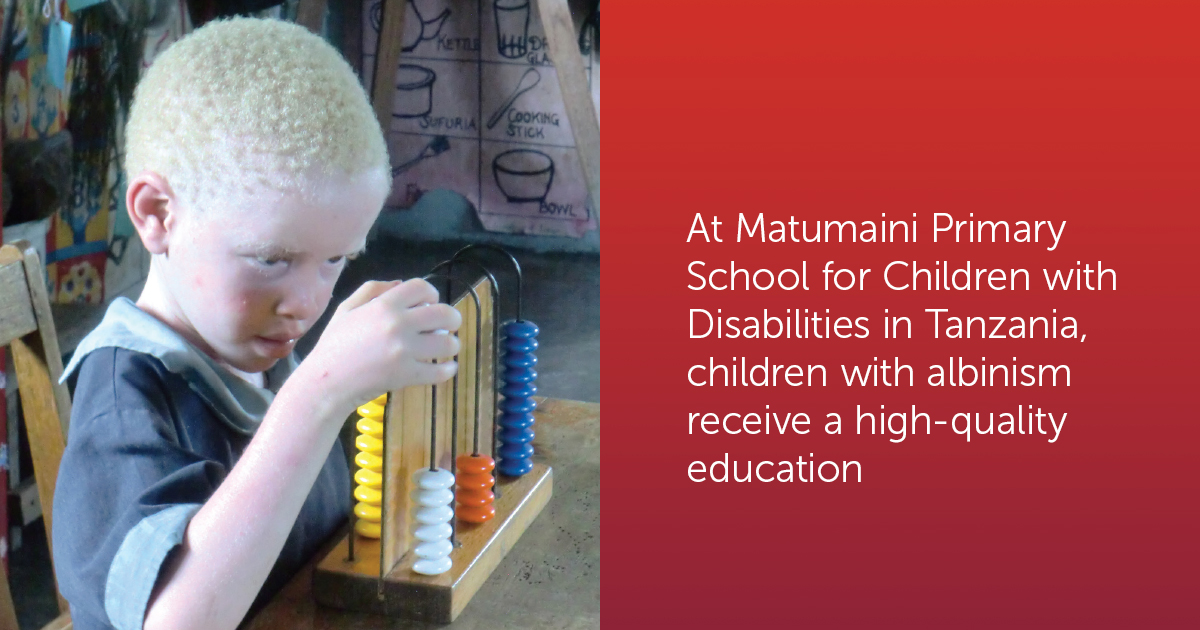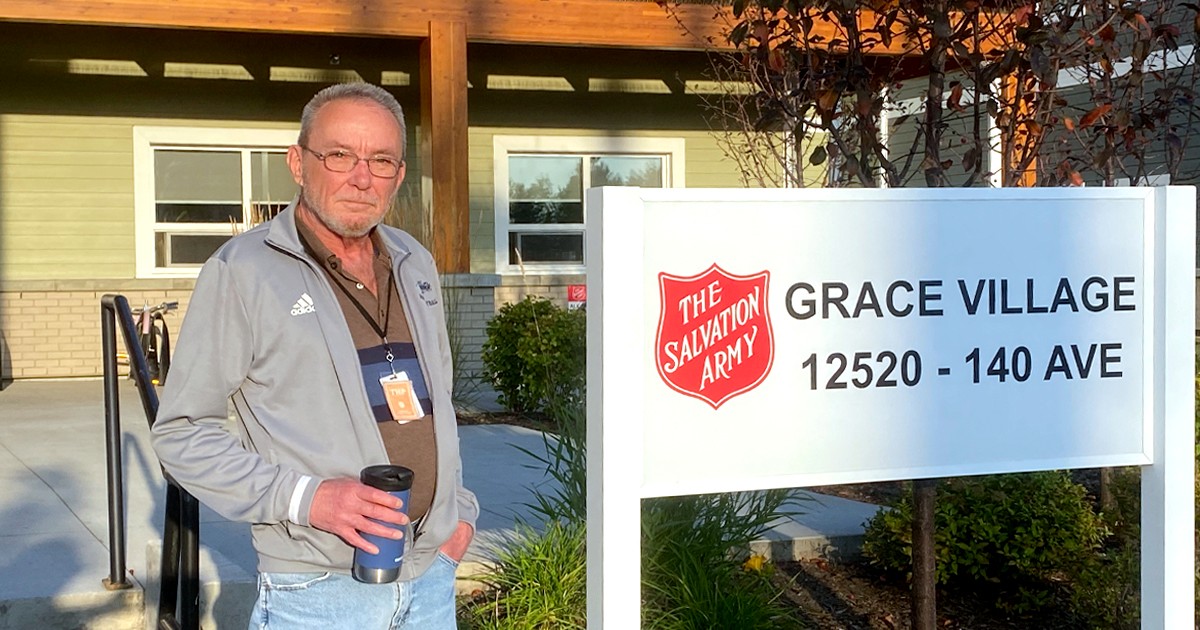Albinism is a genetic condition that results in a lack of pigmentation in the hair, skin and eyes, causing vulnerability to the sun and bright light. As a result, most individuals with albinism are visually impaired and are more prone to developing skin cancer.
Albinism is more prevalent in SubSaharan Africa, and it is estimated that one in every 1,400 people in Tanzania has albinism. Unfortunately, individuals born with albinism often experience many challenges. Along with health concerns, they face discrimination, violence and even death due to beliefs, myths and superstitions, especially in areas where most people are dark-skinned.
A Safe Place for Learning
In Swahili, the word matumaini means hope, and that is exactly what The Salvation Army gives at the Matumaini Primary School for Children with Disabilities in Tanzania. Established in 1969, Matumaini is a primary boarding school for nearly 200 children aged 7-20. It is the largest school of its kind in the country with children coming from communities across Tanzania. Matumaini provides a safe place of learning for children who are disabled, including individuals with albinism. Children are reminded that, in the eyes of God, all people are valued and equal.
At Matumaini, children with albinism not only receive high-quality education, but also necessary care catered to their individual needs. Children with albinism are very sensitive to the sun and therefore require sunscreen, sunglasses and sun-protective clothing and hats when outside. Matumaini provides all of the necessary precautionary measures for children with albinism, as well as providing regular health checkups and arranging for any necessary medical treatments. But Matumaini is not just about meeting the needs of the children today. They are also given the opportunity to dream of the future and set goals for when they leave Matumaini. While the social environment of Tanzania doesn’t always provide an atmosphere that would bring hope for a great future, The Salvation Army is building hope in the children.
The after-school program at Matumaini provides an opportunity for students to learn skills such as sewing and shoemaking. These skills will be a great asset when the children complete school and begin life on their own, as they can use these skills to earn an income. Matumaini also has an active recreation program where the children can build their social skills and learn to work together as a team and independently. All of these activities help to build self-esteem and confidence.
Life-Changing Impact
Heri Abdallah is a 14-year-old boy who has albinism and lives at Matumaini. His mother, a single parent, brought him to Matumaini when he was seven years old. She took him out of a local public school for security reasons; because of the assumptions many people in Tanzania have regarding people with albinism, his safety was at risk.
Today, Heri is in Standard 7 at Matumaini. According to Heri, life at Matumaini is wonderful and pleasant. He says that his life has changed so much since he came to the school. He has been positively impacted spiritually, mentally and physically through the services provided there. Heri’s dream is to study science and become a scientist. He has hope for a bright future, thanks to his experiences at Matumaini and the support of the staff.
The Canada and Bermuda Territory’s Brighter Futures Children’s Sponsorship Program has been supporting Matumaini for more than four years, and continues to provide funding through a partnership with four other territories. Because of the support of our sponsors, we are able to invest in the children at Matumaini, who are treated with dignity and have hope thanks to the care and support they receive from The Salvation Army.
Major Heather Matondo is the sponsorship co-ordinator for the Brighter Futures Children’s Sponsorship Program.
This story is from:










Leave a Comment